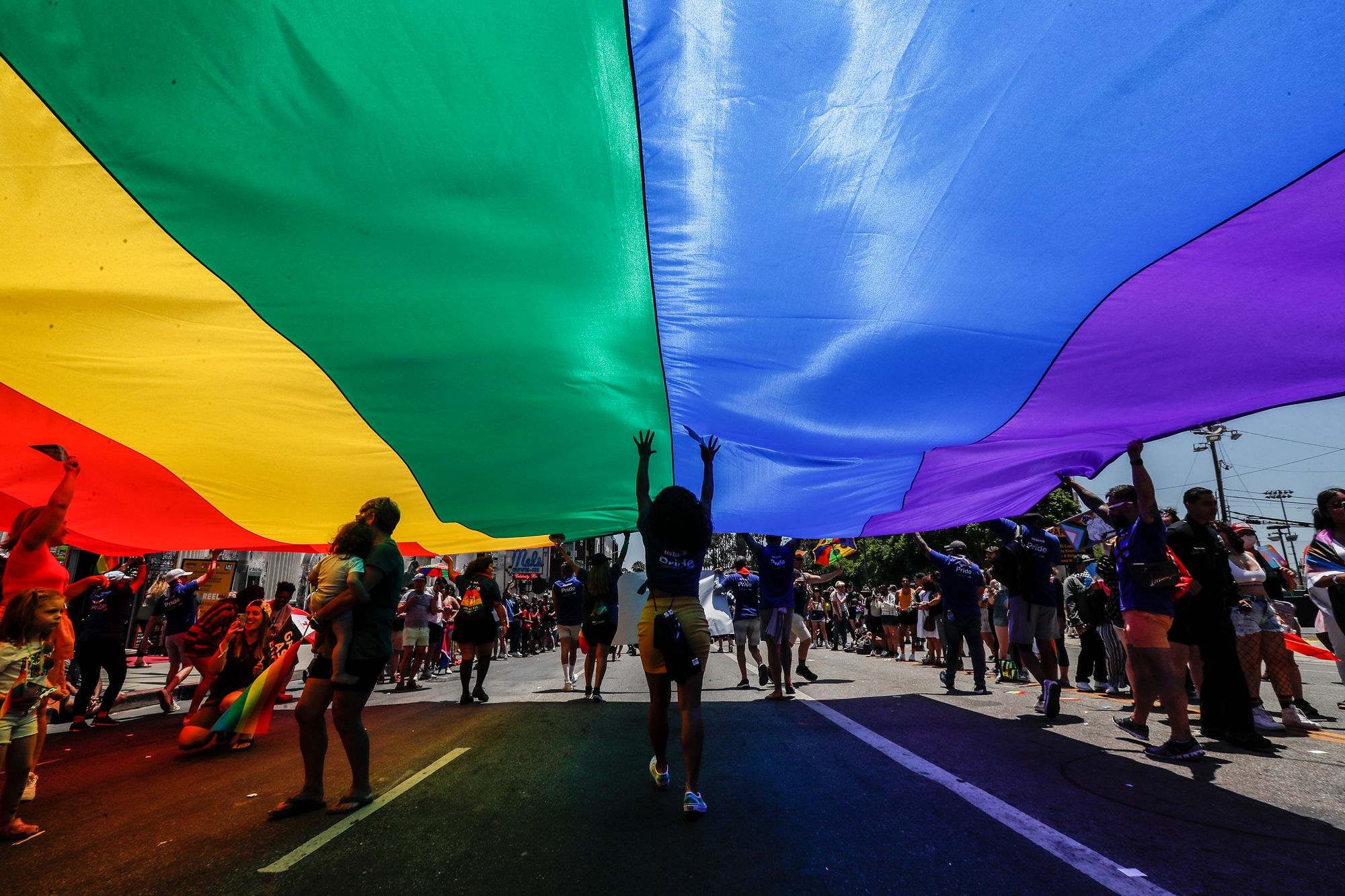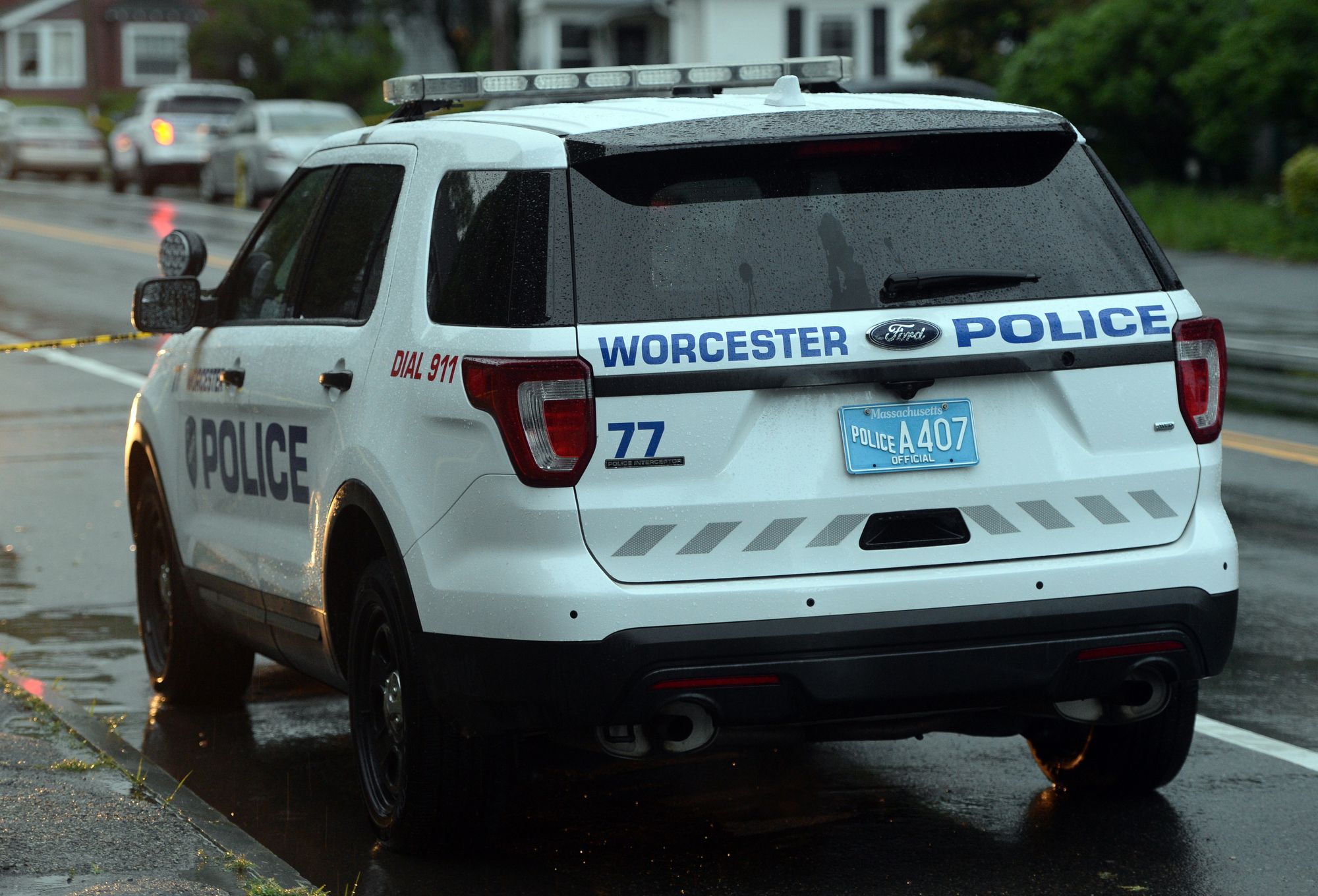Creating new rules on how they can hunt us

Here is a thread of verified fundraisers for the victims of the right wing terrorist attack in Colorado Springs over the weekend.
I often find it difficult to say anything new or novel in the immediate aftermath of yet another mass shooting. It makes a person feel insane to keep repeating themselves over and over again. The same sadness and the same anger. You would think either would dull but they do not.
Aside from a big fuck you eat shit to these two monsters below in particular – as well as to their fellow hatemongers on the right who are doing everything in their power to paint targets on the backs of LGBT people around the country – I wanted to reiterate a few things I wrote in here over the summer about the coverage of trans people in the more polite mainstream media as well.
Mere hours after a right wing lunatic shot 20 people at a gay nightclub in Colorado, a verified account on Twitter which the owner of Twitter has interacted with jovially is presenting a new target for their psycho followers - in Colorado. https://t.co/go9BtYCVdw
— isi baehr-breen (its pronounced ‘izzy’) (@isaiah_bb) November 20, 2022
On Friday night, Tucker Carlson was stoking fears about "the sexualization and castration of children" and "drag shows for children." Incredibly common themes for his program and Fox News more generally. pic.twitter.com/j7kx498k8J
— Matthew Gertz (@MattGertz) November 21, 2022
Back in July I wrote about a series of "just asking questions" articles that the New York Times and similar ostensibly centrist outlets like The Atlantic have been publishing about healthcare for trans people. There was yet another one in the NYT this month which was deftly and powerfully covered here by Lauren Theisen in Defector.

If we're portioning out blame for the climate of lies and fear swirling around LGBT people (with an emphasis on the T) the likes of Tucker Carlson and LibsOfTikTok (thousands of paid subscribers on Substack by the way!) deserve the bulk of it. But this pose of more polite and searching and neutral concern from the NYT and so on needs to be tabulated as well. It's a way of softening up their nice non-bigoted center-left readers to start asking similar questions. Hey wait a minute what is the deal with all this trans stuff?
I think these two Hell Worlds on the topic below are maybe worth re-reading but I'll quote from them a bit here as well.

Violence and discrimination against LGBT people is not some hypothetical future we're talking about. We're not at the top of a slippery slope looking down at what may come to pass we are halfway down the fucking slide. It's here now. It's already happening and it's only going to get worse.
You'll recall the latest iteration of this good old fashioned moral panic being driven by the right and ushered along by our proud journalistic institutions began with questions about who gets to participate in youth sports. It quickly spread from there to outrage about even acknowledging the existence of trans people in schools and solidified with a host of anti-LGBT legislation being introduced in dozens of states around the country. All the while right wing media and politicians have been pouring oil on the fire to the extent where their common very widely accepted talking point has become that talking about LGBT issues – or even being openly LGBT – around children makes you a pedophile and a groomer. That's particularly frightening because you know what a lot of people think should happen to pedophiles. Anything. Who cares. Do what you want.
The conflation of LGBT people and those who support them with pedophiles is stochastic terrorism in its clearest form. It's a license to murder. Wouldn't you want to protect children from people seeking to harm them after all?

I will tell you plainly what is happening right now. The fascists are charged up at the moment after the overturning of Roe and hungry to claw back more of our rights. Trans people have long been in their sights. Many in the center and the center left where most Democrats live seem eager to placate them by sacrificing on this issue to focus on more reasonable "every day" "kitchen table" issues under the misguided impression that if they do perhaps it will slow the right down. It will not. And they will not stop at trans people as we've seen with all the attempts to label drag performers and gay and lesbian teachers who simply share their identity with students as pedophile groomers. After every mass shooting – like the most recent horrific one in Illinois – they spread a rumor that the shooter is trans now.
Who is to say that gay marriage is sacrosanct at this current pace? Clarence Thomas certainly doesn't seem to think so. Do you trust him to do the right thing?
It's easy to forget sometimes but while broad acceptance of same sex couples in America seems like it's been around forever it has not. It's very very new! Same sex marriage wasn't legal in all 50 states until 2015. That was fucking yesterday.
The tip of the spear of American fascism at this point in time begins with transphobia and moves outward from there. Journalists who are sincerely concerned about preventing its further spread would do well to figure out in short order exactly which side it is that they are on.
Joshua was inside Club Q when the gunman entered. He ran and hid. Heard the gunman being “beat up.” Tells @BeedieonTV “This was our only safe space in The Springs. Where are we gonna go?”#LGBTQ #ClubQ pic.twitter.com/ZkijarxZoc
— Josh Helmuth KRDO (@Jhelmuth) November 20, 2022
For the main feature today Bill Shaner reports on the newly launched Department of Justice investigation into the police department of Worcester, Massachusetts. He writes on the excessive force and discriminatory practices of the city's cops then steps back to talk about how similar investigations have gone in bigger cities like Baltimore (as well as how that one was depicted on the HBO series We Own This City.)
Shaner previously reported for Hell World on a No New Women’s Prisons anti-incarceration march, a strike by nurses at Saint Vincent Medical Center, and the cruel displacement of the city's unhoused population.
You'll have to be a paid subscriber to read the whole thing. A bunch of you have taken me up on this offer so I can only do a few more but if you subscribe for the full yearly price I'll send you a copy of one of my books. Hit reply to let me know if you want to do that.
One second before we get to that though:
That's right Jack Antonoff buddy.
while we are having the discussion can venues simply stop taxing merch of artists? this is literally the only way you make money when you start out touring
— jackantonoff (@jackantonoff) November 18, 2022
We covered this in Hell World over the summer if you missed it.


A department that has never faced any serious scrutiny
by Bill Shaner
The Department of Justice launched an investigation into the police department in Worcester, Massachusetts last week, looking at instances of excessive use of force and also race/gender discrimination. It’s a “pattern and practice” investigation of the kind employed in Baltimore, Ferguson, Louisville, Chicago, Springfield and other cities where cops have been caught in high-profile acts of wanton cruelty, racism and brutality.
There’s no One Big Thing which obviously prompted this Worcester investigation. No Freddie Gray or Breonna Taylor or Laquan McDonald. But as I’ll get to there have been a lot of relatively smaller things. Far too many things. A growing body of things. No sign of the things slowing down.
Since 1994 there have been just 76 such investigations into the roughly 18,000 law enforcement agencies in the country. These investigations are wonky, they take years, and while there’s a solid body of academic research showing they’re effective, they’re not a panacea. Police killings have clearly not stopped as a result of them. But the research shows that over time they do tend to lower instances of excessive use of force.
The main idea here is that the DOJ uses their leverage to get local police departments to change policies they otherwise wouldn’t by way of a “consent decree,” which is legalese for “handshake deal but with a very firm hand.”
David Simon’s mini-series We Own This City (2022) depicts the chaos of the Baltimore Police Department after Freddie Gray’s killing and contains probably the only dramatization of a DOJ pattern and practice investigation ever put to film. The main DOJ attorney in the show, Nicole Steele, describes the work this way: “we hold hands and we twist arms.”
Investigations like these have also been a political football since they came into being. Clinton used them. Bush didn’t. Obama used them. Trump didn’t. Fulfilling a campaign promise, Biden brought them back. Worcester is the sixth such investigation launched under his administration.
Worcester is what we like to call a “mid-sized city” at around 200,000 people. Usually when national publications parachute in to write about it they’ll call it a “former mill town” or “hard-scrabble.” A place where the factories used to be and now are not anymore. The rust belt of New England. Lately it’s been a “city on the rise,” which is even worse. It’s a poor city (the poverty rate is double the county and the state) with big immigrant populations (only 63 percent of the city speaks English at home) and a lot of reactionary working class whites we in Massachusetts like to call “townies.” We in Massachusetts also know that the Townies are pound-for-pound some of the most racist people in the world. Worcester is far from a progressive city and, while reliably blue-voting, it borders a very conservative area. There’s a band that runs through the middle of the state, from Worcester on the east to Springfield on the west, that is comprised of extremely conservative rural and exurban communities. Most of the towns in Massachusetts that went for Trump in 2020 are in this band. So Worcester is in the part of the state where its progressive branding is most out of step with reality.
The city’s downtown is hollow and fake and pock-marked by relics of a long-ago time of prosperity. The local political machine is a provincial backwater. The city’s police chief, Steven Sargent, is lauded by the apparatchiks of this backwater and enjoys wide support. He has been in the department for some 37 years, following the footsteps of his father, who served at the WPD for 36 years. He’s deeply entrenched and politically connected and steeped in the culture of law enforcement and people around here tend to love him for that. In 2020, he said not once but twice that he’s never seen an instance of racism in his time on the force. Both times, he was at a public forum on police racism with the media present. In the nearly four decades he’s been on the force, there have been countless examples of WPD publicly doing racist things. In fact the department was sued for racism by its own officers in 2013. But he said it anyway, and he faced exactly zero consequences for it.
That in a nutshell is what the DOJ is dealing with here. The Worcester Police Department is an institution run by townies for the benefit of townies. It supposedly has a boss in the city council, but the council is also run by townies, and they would rather buy the cops new toys than engage in any serious reform effort. I can say all of this in such broad strokes because I’m a local reporter here and I watch every city council meeting and read every report that comes out of the city manager’s office. In recent memory they’ve bought cops a drone and a spurious piece of artificial intelligence software called Shotspotter Connect which portends to “forecast crime.” Critics of both purchases were easily waved off as naysayers. After this DOJ investigation was announced, one of these city councilors attempted to defend the WPD by saying “just because things have happened in the past doesn't mean they’re happening now.” That councilor’s name is Kate Toomey and she is the chairwoman of the council’s public safety subcommittee, which is the body designed to be the main pressure point of police accountability. The person in charge of the accountability body says ‘idk if there’s anything to worry about.’ You couldn’t write a better Parks & Rec bit.
So this isn’t Chicago or Los Angeles. The DOJ is not investigating a 300-murders-a-year major city like Baltimore, but rather a 10-murders-a-year city with a department that has never faced any serious scrutiny and behaves from the top down like it is above reproach.
In that way Worcester will be an interesting case study for the effectiveness of these DOJ consent decree operations. The whole world will not be watching, as was the case in Ferguson or Baltimore. And the local players are going to be just as resistant to change, if not more so.
While DOJ officials haven’t expressly said what in Worcester triggered the investigation, they did say in a Zoom meeting with the community that investigations like this are preceded by a sort of mini-investigation drawing largely from information which is already publicly available, like media reports and court filings. In the past year alone, the local news has been rife with such headlines.
It could be that the DOJ saw the headline from earlier this month regarding a lawsuit filed by Worcester pastor Joseph Rizzuti, who claims that in a 2019 incident the cops tased him and punched some of his parishioners. Rizzuti was also cleared of all charges brought against him last month.
Or did the DOJ see that in September, city resident Christopher Ayala-Melendez won a $275,000 settlement in a civil suit against the WPD over the fact a Worcester officer threw him to the ground and set his police dog on him during an altercation outside a Worcester bar in 2019? And then lied about it in his report? And he’s still on active duty?
The DOJ could have seen the $8 million settlement the city had to pay in September to Leicester man Natale Cosenza, who alleged he was wrongfully jailed for 16 years after Worcester detectives fabricated evidence to support their case against him in a murder trial.
Or maybe the Feds started poking around in April, after reading that Worcester man Dana Gaul filed a federal lawsuit against the department alleging he was wrongfully accused of murder based on “coerced statements and because he is Black.”
Or could it have been in February, when the department lost a lawsuit with the local paper of record over access to disciplinary records? The judge in that case said the city and department “acted in bad faith” in its nearly three year fight to keep records detailing police misconduct from the public. Could have been that.
I think you get the idea. The WPD is constantly the target of civil litigation and it consistently loses. Since 2010, the city has paid judgments in at least 30 such lawsuits to the tune of about $4 million, and there are at least 15 suits still pending judgment.
The DOJ said in its initial release that there’s “significant justification to investigate whether the Worcester Police Department engages in a pattern or practice of racially discriminatory and gender-biased policing, and uses excessive force.” You do not have to look very hard to find instances of excessive use of force or racial discrimination among the rank and file of the WPD. A few minutes on Google is all you need.
But it will likely be years until the investigation concludes and we find out what it is they’ve taken issue with, and then even longer to see what they propose we do about it.
As an example of what might happen, it’s worth looking at Springfield, Massachusetts, a similarly sized and demographically composed city an hour to the west of Worcester. There the DOJ focused on the narcotics bureau, where officers routinely beat people up and lied about it. The consent decree requires a few policy changes toward that end. The bureau will be required to report all instances of use of force to supervisors, and the department will have to train said supervisors in use-of-force investigations. A court-ordered monitoring agency will track the department’s progress in implementing these policy changes. The monitor is former Boston Police Commissioner Kathleen O'Toole. So it’s a cop monitoring changes made by cops.
More high-profile consent decrees in larger departments have led to similar policy prescriptions. In Baltimore, the consent decree was signed in 2017 and detailed 12 policy changes the department promised to make. The changes included the implementation of a Community Oversight Task Force, increased training and better policies in regard to mental health and use-of-force, plus a lot of promises that the police will do things they should have already been doing like thoroughly investigating sexual assault “without gender bias,” transporting detainees “in a manner that keeps them safe,” respecting “the First Amendment rights of all persons,” and making sure “all officers who commit misconduct are held accountable pursuant to a disciplinary system that is fair, consistent and provides due process.”
It’s been five years since the decree was signed, so has it worked? Not well enough to stop the police from shooting people, it would seem. Earlier this month, a local anti-violence activist and rapper named Tyree Moorehead was shot and killed by Baltimore cops. Officer Zachary Rutherford fired 14 shots at close range, killing Moorehead. From the Baltimore Sun:
Bodycam footage shows Rutherford shooting Moorehead from a few feet away as he rolled off the woman, allowing her to move away. Rutherford continued to shoot, including toward Moorehead’s back. After finishing one clip, the officer reloaded his gun and repeatedly ordered a bleeding Moorehead to drop the knife, but didn’t fire more shots.
It was the second police killing in Baltimore this year. At a press conference held after the Moorehead killing, community leaders raised a number of questions. Why did the officer shoot so many times? Why did he open fire immediately upon arrival? Should officers employ so much violence with people having mental health episodes? Would this have happened if Moorehead was white? All questions for which the consent decree was supposed to have answers.
There’s ample evidence and academic research to show that consent decrees have been successful. A Vice News study found that departments who entered consent decrees saw an average of 25 percent less shootings in the first year. A Center for American Progress report showed that in 10 departments with consent decrees, violent crime incidents decreased in each instance. In Seattle, where a decree was signed in 2012, serious use of force incidents declined 63 percent from 2011 to 2019. In Detroit, shootings dropped from 47 in the five years before their consent decree to 17 in the subsequent half decade.
But Moorehead’s death underscores the basic truth that for all the progress these policy prescriptions make on paper, police killings will still happen. The basic question of whether the institution of policing is capable of reform remains an open one. It’s also one of the central and most impactful questions interrogated in We Own This City. The conclusion is not a rosy one—surprisingly so, given it’s coming from David Simon, a guy who can’t help but defend police online, and very much clings to the “good cop” mythos.
While the show focuses on the high profile corruption case brought against officers involved in the Gun Trace Task Force, using the officer’s real names and portraying their real crimes, there’s a prominent b-plot following a separate Department of Justice pattern and practice investigation—the exact same process that just started in Worcester. We’re guided through this plotline by a character named Nicole Steele, a young black woman working as an attorney in the Civil Rights Division of the Justice Department who is tasked with hashing out the consent decree with the top brass of the Baltimore Police Department. Unlike the corrupt cops at the center of the show, Steele is not based on any one real person and the plotline is not so overtly faithful to real life events. The show’s writers use this plot more as a way to illustrate just how messy the business of trying to reform an American police department really is. Steele’s journey is mostly a series of conversations. She talks to top police officials, politicians, community activists, civil rights lawyers, academics, victims, even a crooked cop, and each serves as a treatise of sorts on a specific barrier to reform. As it cuts back and forth between an a-plot depicting the real crimes committed by real cops, these conversations paint the magnitude of the problem quite effectively.
Spoiler alert here. Skip the next paragraph if you’re gonna watch it.
Steele’s storyline resolves on a dissonant and disheartening chord. She slowly comes to the realization her pattern and practice investigation will not accomplish anything at all and that the institution is unreformable. It really sinks in when, in the last episode, a community activist type presses her on what it is a pattern and practice investigation will actually accomplish. “You’re asking what happens if the police don’t want to reform?” she asks, to which the character responds that the police department hunts people like him, and all she’s doing is creating “new rules on how they can hunt us.” In another scene, the academic asks what consent decrees will do to counter the overriding problem of the war on drugs and militarized police. She doesn’t have an answer. Then she loses all hope and spirit when she learns that the incoming Trump administration’s Department of Justice will effectively shutter the pattern and practice investigation program, which did happen in real life at the hands of then-Attorney General Jeff Sessions. She reaches the conclusion of this journey of discovery in a scene inside a district court on an average day. The court is engaged in the routine business of putting people away on drug offenses. A sidekick-type character is with her, and he asks “what are we doing here?” Steele replies, “Look around. Look at it. We’ve built this machine where half the damn country, the part with money and power, chew up the other half that didn’t have anything to begin with. Watch it work. This is what we want. Then the Freddy Grays, the Eric Garners, the Michael Browns, are what we get. Every page of whatever court order we write, it won’t fix it.”
In the next scene, she quits.
Bill Shaner writes the newsletter Worcester Sucks and I Love It.

